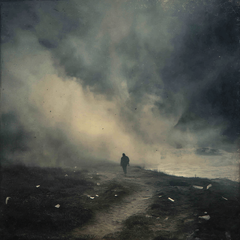Newsletter
Resistance and Refusal of the Call
Posted on October 14, 2025, tagged as

In Joseph Campbell’s formulation of the heroic journey, two of the eight stages of the journey involve the reluctance or refusal of the hero to participate in or to continue in the quest. This is of great interest and critical importance in understanding the trajectory of addiction recovery, which I view as a heroic journey. The first refusal is the refusal of the call to adventure. Here the hero has not accepted the challenge of recovery from the addiction. As we have discussed elsewhere, and as I pointed out in my book, The Twelve Step Pathway: A Heroic Journey of Recovery, this happens multiple times in the life of an addict, and tragically, some never accept the challenge. And once the addict accepts help there are multiple places where resistance occurs. He or she may get hung up on the higher power issue, may be unwilling to take an honest moral inventory, or may be unwilling to make some amends.
Of even greater interest to me is the second refusal, the refusal to return. Campbell says that the most important thing to understand about the heroic journey is that its purpose is to “redeem the world.” The hero must undergo his or her trial for the benefit of others. In AA parlance, “You have to give the program away in order to keep it.” Recovery from alcoholism must happen so that the hero can enjoy a decent life, but it is more important for the benefit of the world to share the recovery knowledge with others. Many people go through the first part of the program, even through the steps of self-searching and the making of amends, while staying sober for several months or longer.
As life normalizes and even prospers, many issues and obligations of work, family, and recreation occupy the time of the hero, such that AA commitments and participation diminish or stop altogether. Some find other ways of “redeeming the world” through involvement with church, civic organizations, or volunteer activities and repay their debt in this way. But there is nothing of value like offering a new chance at life to another alcoholic. Steps ten, eleven, and twelve offer a maintenance program that will ensure not only that the hero will remain on the pathway of recovery, but that the world will continue in its redemption.
AA lore is replete with many true tales of those who stayed sober for twenty or more years, but then “went back out.” In almost every case the relapse was preceded by quitting involvement with AA (or whichever recovery program was involved). My point, though, is that not only has the recovering hero lost his or her own way, but that the opportunity to help others is tragically lost as well.
